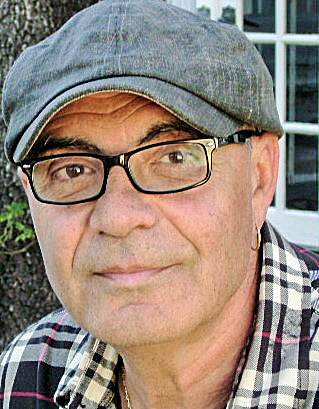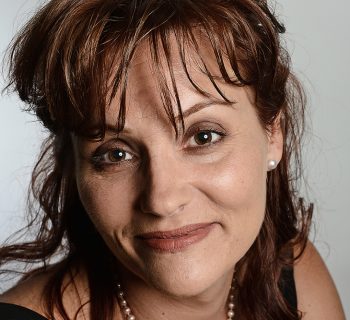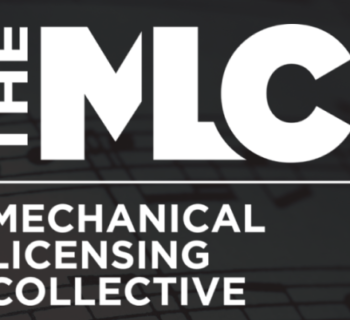The issue of neighboring rights is one that can be very confusing to musicians, especially those just entering the business. Simply put, it’s the money due to recording artists for public performances. But it can all get very messy very quickly, not least because different countries have different laws regarding neighboring rights. Sometimes, musicians need help.
That’s where IAFAR comes in. Naomi Claire Wallace Asher is the vice president of neighboring rights at Sony Music Publishing, as well as the president of IAFAR U.K. and IAFAR Education Ltd. IAFAR stands for the International Association for Artists and Rights holders.
“It’s basically the only trade association in the world specifically for neighboring rights,” Asher says. “The only reason we didn’t put ‘neighboring rights' in the acronym was because I kept going back to the NRA every time I tried, and that wasn’t really the right association for it. Obviously, the top line is ‘working together for neighboring rights.’”
The group was formed out of frustration when, as a publisher, Asher was having problems with neighboring rights and realized that there wasn’t a single group that she could take them to.
“There was nothing that existed that I could go to with this society industry-wide problem,” she says. “That’s how IAFAR was born.”
The group was formed with Ann Tausis from Kobalt and music lawyer Stacey Haber, in November 2018. Since then they have had some wins, but progress hasn’t been made as quickly as Asher would like.
“We are hampered by the fact that we have no funding,” she says. “We’re a membership organization, but we try to keep the fees quite low so that we can be accessible to everybody. The flipside of that is we need sponsorship, we need donations, we need funding. Currently, we’re all doing this in our free time, which is limited. So, the amount of progress we’ve been able to achieve has been severely limited by essentially time and money. A lot of people don’t understand why this is such a necessary thing, which has been a little bit frustrating, but at the same time when you talk to people they’re all very interested in having IAFAR help with different causes that are all in this world. So, we’re very much on track with what we’re doing, it’s just been a slow build.”
Clearly, IAFAR needs to build awareness in order to generate funding through memberships and donations, and to that end they’re hosting a conference on June 21 and 22 in the U.K. and Los Angeles.
“There are several things,” Asher says. “The one that I’m most excited about is getting a group of CMOs together in one room and having them answer questions, because so many things vary by territory in this income stream. What works in the U.S. doesn’t work in the U.K., doesn’t work in Brazil, doesn’t work in Canada, doesn’t work in Spain. It’s all very different. I think a lot of people have a difficult time wrapping their heads around how different they are. Also, we are very big on education and it’s something that we really do want to have. Our focus is twofold: education and advocacy. Having a conference allows us to really do both. Create networking opportunities within this income stream for the people who need to better understand what’s going on, and also help us solidify our platform so that we can do more advocacy and we can go out there and really work towards transparency and some sort of uniformity in this income stream which at the moment there is not.”
If any musicians are interested in attending the conference, physically or virtually, but are concerned that the business speak will be too confusing, fear not. Asher assures us that this is for everyone, and there will be people on hand to explain everything.
“We’re definitely going to have neighboring rights one-on-ones,” she says. “We’re asking attendees to give questions for the CMOs, so all the questions for the CMOs will be put to them, even if it’s just like, ‘How do you pay us?’ In the U.K. on day two, we’ve got essentially four hours earmarked for one-on-one sessions with board members. So somebody who is super confused can book 15 minutes to sit down with me and ask whatever they need to ask, and hopefully get some answers and start understanding what’s going on. It’s definitely going to be accessible to anybody who comes along.”
The event will be held in England and Los Angeles simultaneously, and anyone who buys a ticket to one has virtual access to the other.
“There are a few panels that are going to be pre-recorded because obviously with the time difference, there’s only so much in person we can do at the same time,” Asher says. “The only panel that will actually be live in both places at the same time is the CMO Q&A. Otherwise, they're separate but connected events in that sense. Day two in the U.K. will basically be four hours of one-on-one sessions, and then our AGM.”
Asher says that it’s absolutely worthwhile musicians in the States logging into the U.K. conference and vice versa, because it’s an international organization.
“Certainly what is happening in the U.S. has a massive effect on the rest of the world,” she says. “Because there are a lot of reciprocity issues that cause Americans, Australians and New Zealanders to earn less than their British, Canadian or French counterparts. The laws are so different. A film and TV panel in the U.K. is going to be very different from a film and TV panel in the U.S. and we are doing film and TV panels in both countries.”
Beyond the conference, donors, sponsors and members are going to be necessary if the organization is going to survive into the long term.
“We're really excited about that because we’re hoping to provide modules for schools for business programs,” Asher says. “A lot of people learn about publishing, but they don’t learn about neighboring rights. Then they go into publishing and people ask them about neighboring rights and they don’t know what they’re talking about. So, we’ve created modules where we’ve started working with some educational institutions. We’re talking to universities and music business schools in both the U.S., the U.K. and in Canada as well.”
Ultimately, you can help. Join IAFAR, become a donor, become a sponsor, and go to the conference in June.
Visit iafar.co.uk for complete information














